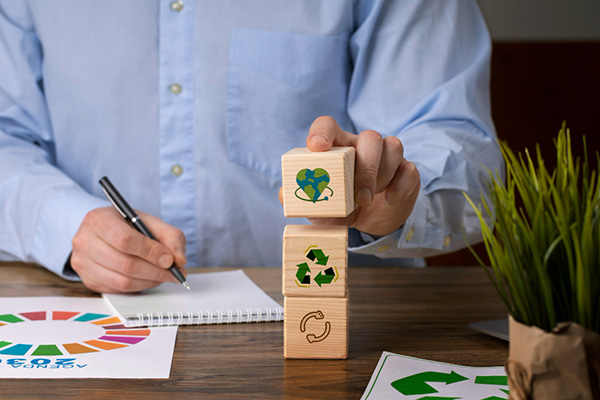04 September 2025 |
Regenerative Economy: When Innovation Means Healing
Regenerative Economy: A Step Beyond Sustainability. The circular economy has been a major achievement. More and more companies are reusing, repairing, and recycling to generate less waste and extend the lifespan of products. But some believe that simply avoiding environmental harm is no longer enough. The regenerative economy goes a step further, aiming to heal ecosystems and territories.
It’s not just about mitigation—it’s about regeneration. What does that mean in practice? It involves restoring degraded soils, fostering biodiversity, improving water quality, and revitalizing rural economies.
The logic shifts: reducing negative impacts is no longer sufficient. The challenge is to implement solutions that leave the environment better than it was before.
Producing regenerative wool that improves soil health and protects ecosystems. NATIVARegen™ is a regenerative agriculture program developed by NATIVA™, the sustainable fiber unit of the French group Chargeurs. Among other brands, the British sustainable fashion company Pangaia works with farms certified by this initiative. These practices improve soil health, help retain nutrients, and contribute to capturing CO₂ emissions. The farms produce merino wool, yes—but they also regenerate the ecosystem from which they source their raw materials.
Fewer fertilizers, more future for farming. The Farming for Generations project, led by Danone, brings together key players such as Wageningen University (Netherlands), WWF France, and agri-food companies like DSM-Firmenich, FutureCow, Yara, and Connecterra. Since 2019, the program’s promoters have collaborated with 25 dairy farms in the United States, Europe, and Russia to implement regenerative practices that improve soil health, reduce the use of synthetic fertilizers, and promote animal welfare. The goal? To build a sustainable, economically viable agricultural model that addresses today’s environmental challenges.
Cleaning with a positive impact. Belgian brand Ecover, known for its eco-friendly cleaning products, has made respect for the natural environment one of its core values. Through its Fertilise the Future initiative, it invests in projects that restore freshwater ecosystems and coastal areas linked to its raw materials. Yes, they clean—but they also help regenerate the environments they depend on. They’ve already allocated over £500,000 to support start-ups that reforest riverbanks, restore marine habitats, and promote more sustainable production models.
In all these cases, innovation is used to repair—not just to reduce harm. That’s the regenerative mindset.


